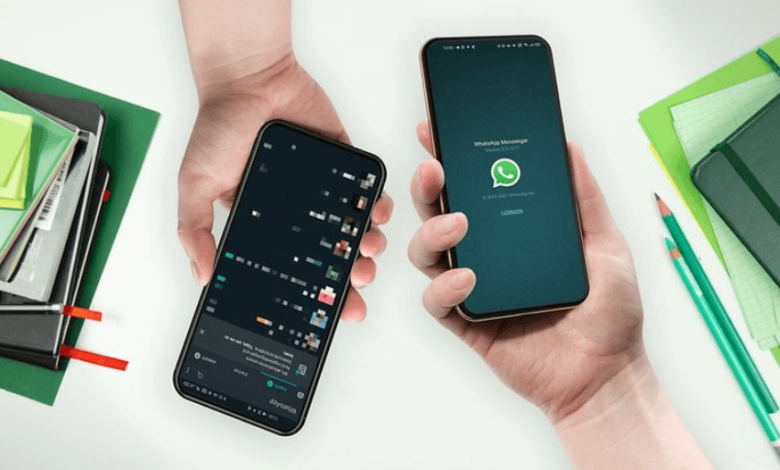WhatsApp Web Login Security Tips You Must Know

In today’s connected world, there’s no better way to get from your phone to our computers than WhatsApp Web. With this integration you can both send messages and receive messages right from your desktop browser. But that cross-border link between your phone and the computer also offers a great deal of security challenges. Logging into whatsapp Web is fairly easy but protecting your phone conversations is very important. You’re going to have personal and often quite sensitive information exchanged in this service and you want to do everything possible to protect it. Here’s a look at some of the key tips on security to help you use whatsapp web safely.
Understanding the WhatsApp Web Login Process
First of all you need to understand the way WhatsApp Web login works. Your phone is the “brain” of this world, and nothing more, nothing less. When you scan the QR code on the web page with your phone, you are basically agreeing for that browser to display your messages to that browser. There’s no storage on the computer itself, either. Everything stays on your phone, and in WhatsApp’s encrypted servers. This is pretty secure in principle, but it depends on what you want out of it. Every time you start a new WhatsApp Web login session you build up a new connection. That needs to be used wisely.
Always Log Out on Shared Computers
This is perhaps the most important rule. When you’re done using Masuk WhatsApp Web on a computer that’s open to the public or shared (in a library, office, or internet cafe) and whether that’s in an Internet café, for example! you need to log out. No, not just close that browser tab. To log out properly, you must click on the three-dot menu from within WhatsApp Web and then click “Log out”. This kills the connection between your phone and the computer. If you do this incorrectly, every time someone opens that browser, they automatically get access to the whole contents of your messages (unless you explicitly log out on your phone).
See also: Unlocking the Full Potential of Your Website
Never Use WhatsApp Web on Untrusted Computers
Not only logging out is important, but also the better practice would be to never use WhatsApp Web login on computers that aren’t trusted at all. The software on a public computer can have many things running on it, that Keylogger or some other malicious program could be recording your keystrokes or taking a screenshot, you may even have sensitive information on them even when you’re browsing. If you are forced to use a public computer, make sure to log out carefully, and check who’s already logged in from your phone and delete sessions you don’t recognize.
Regularly Review Your Active Sessions
In WhatsApp a hidden security feature allows you to see all the computers you’re currently logged in to. To check this, open WhatsApp on your phone, go to Settings > Linked Devices. There you will see the list of all valid WhatsApp Web login sessions (including the device type and last time the session was active). Try to make sure that you review this list at least once every week. If you see any devices you don’t recognize or don’t use, just tap on it and then tap “Log out”. This will stop the session in question remotely which safeguards your account from being accessed by anyone else.
Keep Your Phone Secure and Updated
Because your phone is the key to your “Whatsapp Web” account, you cannot compromise its security. Make sure that your mobile phone is secured with a strong passcode, fingerprint or facial recognition system. That way, no one who has physical access to your phone can proceed with your Web session and, by extension, get access to your chats. You should also maintain a current version of the WhatsApp app. Not only do social hackers update their programs regularly, but many vulnerabilities in the app are already patched, so you could end up exposed to risks that have already been fixed.
Enable Two-Step Verification
Two step verification is an additional level of security for your WhatsApp account itself. It directly affects the setup of WhatsApp Web login. When enabled, you set a personal six-digit PIN that you’ll be prompted to enter at random times. At its core, this security measure is essential. If somebody tries to link your phone number with the account (i. e. try a new WhatsApp Web login) with this PIN, then they may not be able to associate your account with them even though they have your SMS verification codes. This can be enabled on your WhatsApp phone settings under Account > Two-step verification.
Beware of Phishing Attempts
Be very careful when you receive email (or other message) from WhatsApp asking you to scan a QR code to login to WhatsApp Web. There are some spoofed QR codes, that scammers sometimes send out to trick you into linking your account to a device controlled by the attacker. Never scan a QR code from an untrusted source. Only scan codes directly from the official web. whatsapp. com website. That way you are the one creating the connection to a legitimate service.
Ensure Your Computer is Protected
Finally, it’s important to keep your computer secure when accessing WhatsApp Web. Make sure your desktop or laptop has good-quality antivirus and anti-malware software installed and updated. A malicious computer can essentially break anything else you did to ensure that your data or login sessions don’t get stolen, so be sure that your computer is safe for WhatsApp Web, and follow the good habits listed above to protect your data and privacy.





